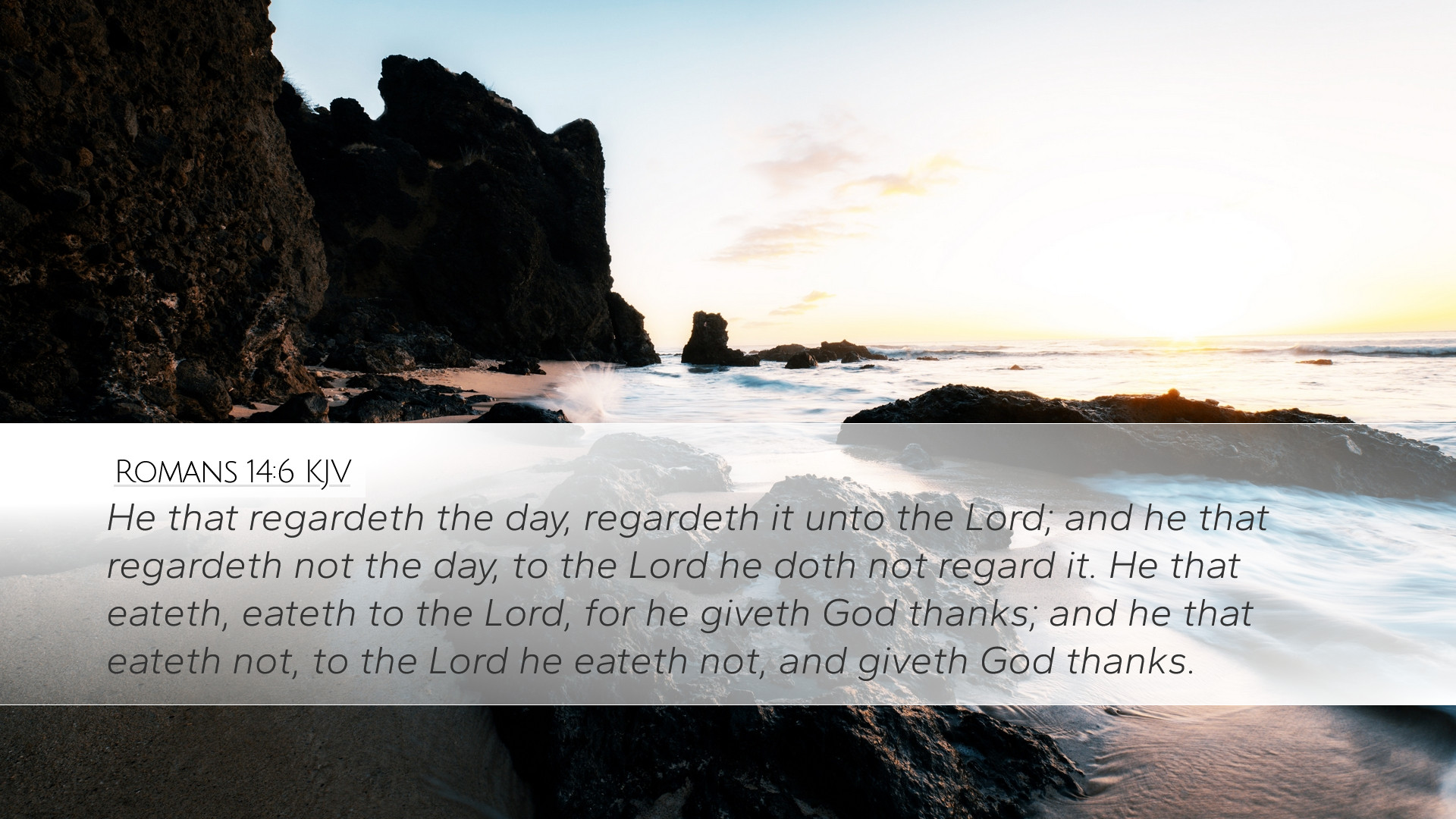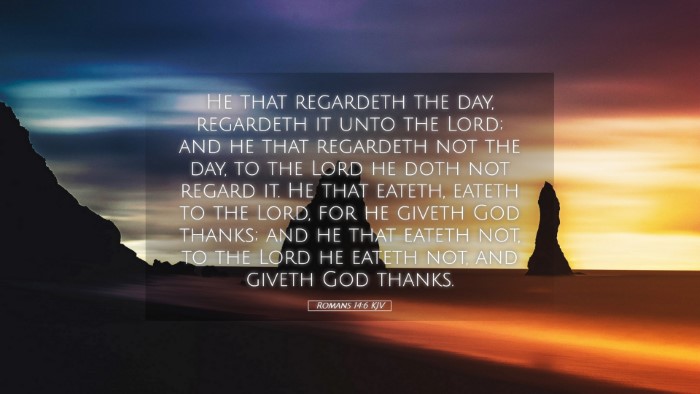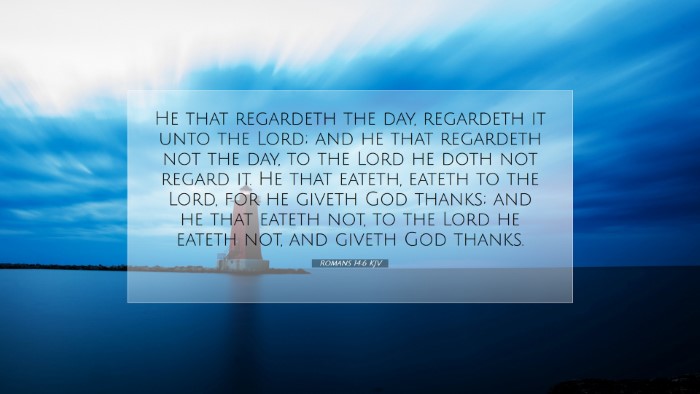Old Testament
Genesis Exodus Leviticus Numbers Deuteronomy Joshua Judges Ruth 1 Samuel 2 Samuel 1 Kings 2 Kings 1 Chronicles 2 Chronicles Ezra Nehemiah Esther Job Psalms Proverbs Ecclesiastes Song of Solomon Isaiah Jeremiah Lamentations Ezekiel Daniel Hosea Joel Amos Obadiah Jonah Micah Nahum Habakkuk Zephaniah Haggai Zechariah MalachiRomans 14:6
Romans 14:6 KJV
He that regardeth the day, regardeth it unto the Lord; and he that regardeth not the day, to the Lord he doth not regard it. He that eateth, eateth to the Lord, for he giveth God thanks; and he that eateth not, to the Lord he eateth not, and giveth God thanks.
Romans 14:6 Bible Commentary
Commentary on Romans 14:6
Romans 14:6 states: "He who observes the day, observes it to the Lord; and he who does not observe the day, to the Lord he does not observe it. He who eats, eats to the Lord, for he gives God thanks; and he who does not eat, to the Lord he does not eat, and gives God thanks."
Introduction
This verse encapsulates the essence of Christian liberty and the proper attitude towards differing practices among believers. The Apostle Paul addresses the rising tensions between those who observe certain days and those who do not, as well as between those who eat certain foods and those who abstain. His teaching provides a foundational principle that recognizes the importance of intention and gratitude in all acts of worship.
Understanding "Observing Days"
Paul recognizes that days can be observed with significant intention and devotion. Matthew Henry remarks that observing special days is not inherently wrong but highlights the motivation behind such observance:
- Intentionality: The one who observes a day does so in honor of the Lord, reflecting a desire to set that time apart for spiritual purposes.
- Freedom of Conscience: Paul emphasizes that each believer must follow their own conscience in these matters, respecting the diverse practices within the body of Christ.
The Role of Eating
Next, Paul discusses dietary practices, affirming that both eating and not eating can be acts of worship if done with the right heart:
- Gratitude: The act of eating should come with thanksgiving to God, as noted by Albert Barnes. This illustrates that every meal is an opportunity to honor God regardless of dietary restrictions.
- Liberty in Christ: Adam Clarke points out that the believer's relationship with God supersedes external practices. Christians are free from the law but are called to exercise their liberty responsibly.
Evaluating the Heart's Attitude
The emphasis in this verse is on the heart and motivation of the individual. Paul teaches that it is not merely the action itself that God evaluates, but the heart behind that action:
- God-Centered Living: Both the observer and non-observer aim to please the Lord, which reflects a heart that desires to align with God's will.
- Unity in Diversity: Paul's message promotes unity within diversity, encouraging believers to accept one another in differing practices, as long as they are rooted in worship toward God.
The Broader Context
To fully grasp the implications of Romans 14:6, it is crucial to consider the broader context of Romans 14:
- Addressing Conflict: Paul writes to address conflicts arising from differing convictions, urging the church to focus on love and acceptance rather than judgment.
- The Weak and Strong Believers: Paul delineates between 'weak' and 'strong' believers, explaining that the weak are those constrained by their convictions, while the strong enjoy greater freedom.
Practical Applications
From Romans 14:6, several practical applications arise for communities of faith:
- Communal Respect: Christians are called to respect one another's unique expressions of faith, whether in observing special days or dietary choices.
- Intentional Worship: Every action, including our eating and festivities, should be framed through the lens of worship and gratitude toward God.
- Educated Conscience: Believers are encouraged to develop their understanding of biblical principles to better align their practices with their faith.
Conclusion
Romans 14:6 serves as a profound reminder of the freedom found in Christ, urging believers to maintain a heart of worship in all actions. Whether observing a day or participating in communal meals, the true essence lies in glorifying God and building one another up in faith. As Henry, Barnes, and Clarke collectively reflect, such understanding fosters harmony in the body of Christ and leads towards an enriched Christian community.


